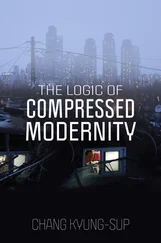“Me?”
“He won’t say no to you.”
“He won’t give a damn about me.”
“I don’t mean that way.”
“What? What do you want me to do?”
“I want you to make sure he comes with us. Will you do that for me, Hector?”
“You want me to threaten him? Handle him?”
“I want him to be with me. If I had to, and could grab him and hold on to him myself, I would. But I don’t have any strength left. I have money but I can no longer exert myself. I have no strength at all. You’re my body now. You’ll be my limbs. It’s best for both of us if you just do what I want. As I told you, my attorney in New York will expect to hear from you after all this. After I’m gone. Or wherever you are, you can call him and he’ll wire what I’ve set aside for you. Then you’ll be able to do what you really wish.”
“And what’s that?”
“You really want to know what I think?”
“Sure.”
“To go bury yourself for good.”
Hector drove on in silence. She didn’t care that he was cross at her. He was not here for the money, or for her, maybe not even for himself, if “for himself ” meant the usual reasons a person did anything: some principle, or necessity, or pleasure, or the avoidance of displeasure, pain. June had not thought it as a girl, for back then she was even more fixed in her purpose than she was now-to survive, always survive-but she had come to see over the last several days that he was a being who completely lacked desire. Clearly he had had deep feeling for Dora, but she was gone and now it seemed he had fallen back into an existence most familiar to him, which he wore like a grotty old cap. He wanted nothing. He yearned for nothing. Even his drinking was just marking the time, a busyness of the hands, the mouth. He hardly seemed to care whether he was living or dead. At moments this infuriated her, given how she herself was gripping the edge of the precipice; it made her want to push him out of the car and take the wheel. If anything, she thought, he was here to wallow in the memory of Sylvie Tanner, to punish himself over her, which she knew would also be her tightest lashing, her darkest charm, and keep him longer at her side.
She had plenty to punish herself with, too, but she was focused on Nicholas. She was becoming afraid that he might resist seeing her. Even refuse. It was perhaps mad, but she pictured how if Hector had to corral him, forcibly hold the boy down, she might decide to stick him with her syringe, in order to calm him down. Certainly Nicholas would have to accept them as the best option: either she and Hector would arrest him or the authorities would. And while they journeyed to Solferino together in the back of the car, she would tell him the things she had been meaning to tell him, since the day he left for Europe: that she was sorry for her selfishness during his childhood, her focus too narrow to include even him; that she thought him vastly talented; that his sensitivity was not, as she might have led him to believe, a weakness, but could be turned into strength, of which his stubborn distance from her was a sure sign; that she forgave him for taking her book on Solferino and that he should forgive her, if he could, if not now, then someday. Lastly, she would tell him that she had always loved him, despite her meager capacity to show it, that if she could will herself eternal life it would be wholly spent at his side.
All this was true, all this was true.
And yet Sylvie Tanner, too, was ruling the weather of her mind, like an incipient mass of stormy air; she felt disturbances and shifts, the invisible whorls of a presence, even the taste of her own tongue different in her mouth. She had to close her eyes now, as it seemed Hector was speeding up. She had long thought her love for the woman was dissipated, and had been for years, hardly a memory arising. But it was messy; love was the question that had confounded her most in life. With “loved ones”-with a mother and father, sisters and a brother, with a son-one always began with love and proceeded from there, and through time and happenstance saw it broadened, or shored up, or else steadily assailed, wrecked, and torn down.
But for June it had not been exactly so; her secret feeling was that the opposite was true. Even before they had all perished, or vanished, she had had a heart that craved more readily than it accepted, she could look upon the face of a beloved with no ill reason or malice and in an instant cleave herself from the bond. It was an effortlessly monstrous ability, as if she could simply pluck from her heel a spur called love, her own cool blood the quickest antidote.
And yet with certain unknown others, she had given herself over too deeply, perhaps a half-dozen times, with both men and women. This in the years between Nicholas’s leaving and before meeting David, when her solitude was almost too perfect and she craved to be touched. It was never more than the act, though there would always be some prelude. It was this way with a woman named Stephanie, whom she knew for the length of a weekend antiques conference and would never see again. She had had no intent to meet anyone, but at a booth she met this beautiful, striking woman of Spanish descent with pale skin and a full, swollen-looking mouth, and somehow the reedy timbre of the woman’s voice and her lithe, narrow-shouldered physique rendered June blind with purpose.
For two days she went about seducing the woman not with her body or character or any of the usual wiles but a furious and open desire. She kept touching her arm, brushing against her when they sat together, telling her how lovely she was, applying a constant, pressuring want that had the effect of cutting off all other avenues, all other possibilities; she would force her to relent. In the end, as if by her design, the poor riled woman finally led them from the exhibition hall past fire doors into the back concrete stairwell of the hotel, where they roughly kissed and groped each other before going up to the hotel room, their grunts echoing downward and upward in the dimly lighted well as though they were toiling in a catacomb.
IT HAD BEEN LIKE THAT at the orphanage. After the Tanners first arrived, June had actually suffered what seemed a weeklong walking illness, hunched over like one of the older aunties, swallowing back a sour burning in her throat. She might not eat much for a day, or two, then would gorge herself until she could hardly breathe, her stomach feeling like it would burst. Of course once Sylvie and June got to know each other and June started cleaning the cottage for her it eventually went away, but for a while a certain effect lingered, a mild nausea just before she knew she would be with her, the same before any imminent parting: she’d feel she was going to retch, her mouth filling with spit as she ran off. Then, one day, she caught a glimpse of Sylvie changing out of some soiled blue jeans into a skirt before dinner, her long flanks chapped pink from the rough fabric, the smooth knobs of her knees almost showing through her diaphanous skin, and June, her chest burning, finally understood her discomfort might be the expression of a desire.
She sometimes wondered, naturally enough, if Sylvie could ever have a similar feeling for her. It was pure innocence, of course; she could never link her emotions with the depraved carnality she’d witnessed during the war, for she was a child again in the woman’s presence, and she gave herself over to whatever Sylvie asked of her, even when she said that they should not spend so much time together, for the sake of the other children. June didn’t care a whit for the others but had agreed without hesitation or question. Still, she couldn’t help constantly testing the woman:
“Would you have played with me when you were a girl?”
Читать дальше











